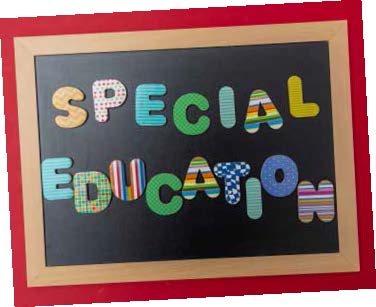Meeting the psychological needs of learners
Meeting the psychological needs of learners LondekileThe Gauteng Department of Education identifies and helps learners who require additional support to enhance their participation and inclusion in school.

According to Nausheen Ameen of the Gauteng Department of Education (GDE), children are in dire need of support and guidance.
Ameen is an educational psychologist who heads the psychological, therapeutic and medical services unit at the provincial department.
Among other things, her job demands that she coordinates the work done by the 44 other educational psychologists employed by the department and based across all districts.
“The main function of our work is to provide support to psychologists who deal with learners experiencing learning difficulties,” she explained.
“We have to ensure that children are able to function within the education system, which comprises family, community and a school. Our system is a circuit. We cannot say learners are the responsibility of parents alone, or teachers alone… we need every one of them to work together for the benefit of our learners. Our job is to coordinate that,” she added.
The well-being of a child
Ameen said there are many factors that affect children’s well-being, including medical and psychological conditions, trauma, abuse, violence, being bullied and other family-related challenges such as parents going through a divorce or separation or a family member who has just passed on. The list is endless.
She said not all learners are able to cope with these challenges and some end up experiencing difficulty in learning, or even needing to be placed in a special school.
According to Ameen, the department’s Screening, Identification, Assessment and Support Policy is used to identify learners with special education needs.
“According to the policy, teachers who identify a learner who needs a special education offering must escalate the case to a school-based support team which will further escalate it to the relevant district-based support team, which will then determine the learner’s needs,” she explained.
Diagnosing children
Ameen said the number of children who need psychological, therapeutic and medical services is on the rise in the country.
She said in her office alone, she receives over 50 cases a month.
“Not every parent can afford to take their children for psychotherapy privately because psychologists are expensive, therefore we have GDE educational psychologists available to asses children’s needs,” she said.
After the learner has been identified, an educational psychologist does an assessment and ensures that therapy and counselling are provided, where necessary.
She then refers the case – with recommendations of what needs to be done – to a district educational psychologist where the learner is based, so that they can contact the parent or guardian to set-up an appointment for further intervention.
Ameen said sometimes parents themselves pick up on challenges facing their child and call the department through the MEC’s office.
“When we get these referrals from parents, we go through the same process of assessing the case before we can decide what is best for the child in terms of being placed in the correct school to meet their needs,” she said.
She added that her unit also works very closely with social workers employed by the department because some cases need more than psychological attention.
If you suspect that your child needs psychological assistance, contact the Department of Basic Education: 0800 202 933 or email: Callcentre@dbe.gov.za